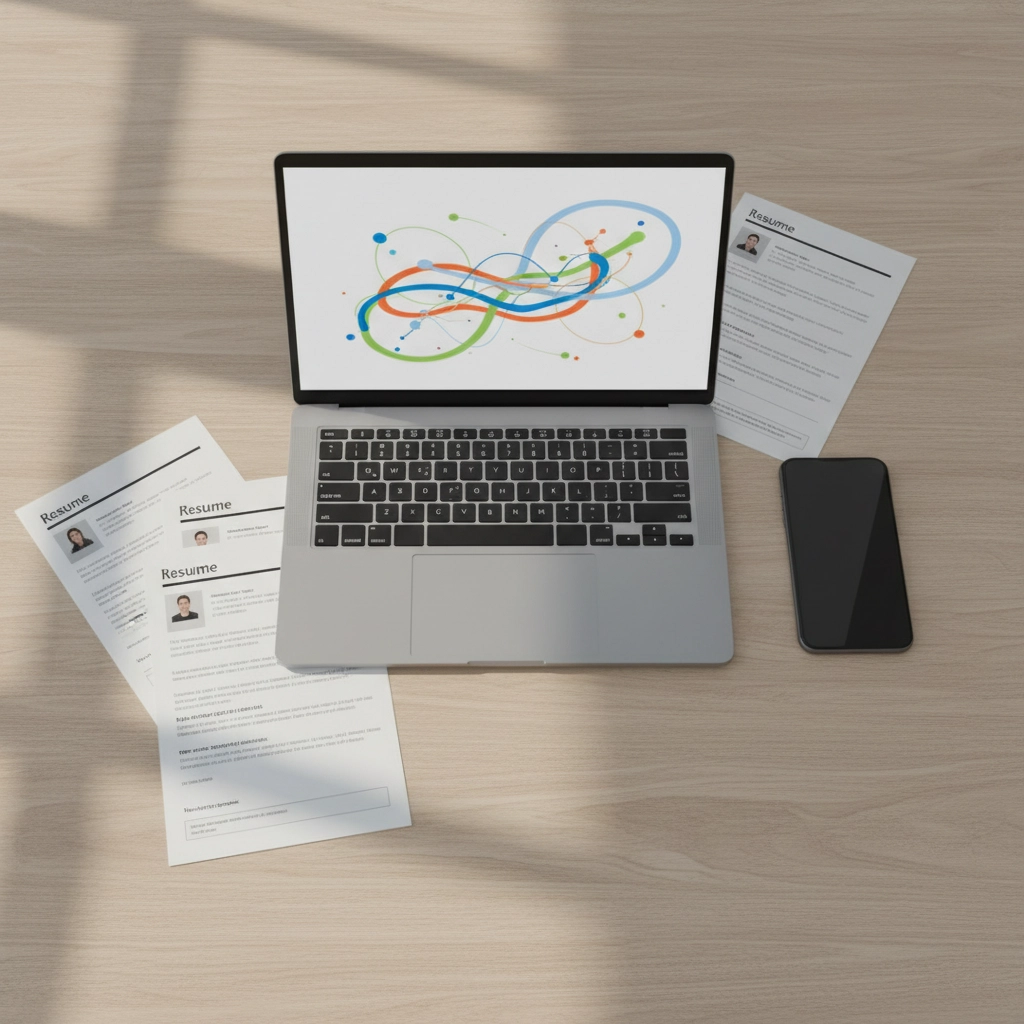Is AI Making Your HR Decisions Illegal? The Hidden Compliance Risks Every Business Owner Should Know
- jelizabetha
- Oct 10, 2025
- 5 min read
Your new AI recruitment tool just screened 500 applicants in minutes. Impressive, right? But what if it's also quietly discriminating against older workers, people with disabilities, or visible minorities? The uncomfortable truth is that 83% of employers now use some form of automated decision-making in HR, and many are unknowingly creating massive legal liabilities.
AI in HR isn't just a tech trend: it's becoming a compliance minefield that could cost your business hundreds of thousands in wrongful dismissal claims, human rights violations, and privacy breaches. The worst part? You might not even know you're breaking the law until you're facing a tribunal.
The Discrimination You Can't See Coming
Here's the problem with AI: it learns from historical data, and that data is packed with decades of unconscious bias. Feed your AI system performance reviews from a department that's historically been dominated by one demographic, and guess what? The algorithm will develop preferences for similar candidates.
Real-world example: An AI screening tool trained on data from your top sales performers (who happen to be mostly young, male university graduates) might start rejecting qualified older candidates or those with different educational backgrounds. You're not intentionally discriminating, but under Canadian human rights law, intent doesn't matter: only impact does.

The Mobley v. Workday case in the U.S. shows where this is headed. Plaintiffs argue that Workday's recruitment software systematically discriminated against applicants over 40. While this is American litigation, Canadian human rights tribunals are watching these cases closely, and our Charter rights and provincial human rights codes offer even stronger protections.
The Canadian twist: Our federal Employment Equity Act and provincial human rights legislation create additional obligations. If your AI system creates adverse impacts for designated groups (women, Indigenous peoples, persons with disabilities, visible minorities), you could face compliance orders, financial penalties, and mandatory system overhauls.
You're Still Liable (Even When Outsourcing)
Think using a third-party AI vendor protects you? Think again. Canadian courts consistently hold employers responsible for discriminatory practices, regardless of whether they originate in-house or through external service providers.
Joint liability principles mean both you and your vendor can be on the hook. If your recruitment agency's AI tool screens out candidates based on postal codes (which often correlate with race and income), both companies face potential liability under human rights legislation.
The Ontario Human Rights Commission has been clear: employers cannot delegate their human rights obligations to technology vendors. You remain accountable for compliance with the Human Rights Code, Employment Standards Act, and federal legislation.
Four Critical Risk Areas That Could Sink Your Business
1. Bias and Algorithmic Discrimination
AI systems perpetuate the biases embedded in their training data. This creates particular risks under Canadian law:
Charter violations: Section 15 equality rights apply to government employers
Provincial human rights breaches: All employers face potential tribunal complaints
Employment equity failures: Federal contractors risk losing lucrative government contracts
Common scenarios: AI tools that screen resumes for "culture fit" often discriminate against newcomers to Canada, Indigenous candidates, or those from different socioeconomic backgrounds.
2. Privacy Law Violations
Canada's privacy landscape is complex and getting stricter:
PIPEDA compliance: Federal private sector privacy law requires consent for data collection and use
Provincial privacy acts: Alberta, BC, and Quebec have additional requirements
Bill C-27 changes coming: New AI-specific regulations are in development
The risk: AI systems often analyze employee communications, social media, and personal data without proper consent frameworks. One privacy complaint could trigger investigations costing tens of thousands in legal fees and compliance costs.

3. Lack of Transparency and Explainability
Canadian human rights law requires employers to explain their decision-making processes. AI's "black box" problem creates serious compliance challenges:
Tribunals expect clear explanations for employment decisions
Candidates have rights to understand why they were rejected
Collective agreements often require transparent promotion and discipline processes
Bottom line: If you can't explain how your AI reached a decision, you'll struggle to defend against discrimination claims.
4. Accountability Gaps in Discipline and Termination
Using AI for performance management, discipline, or termination decisions creates unique risks:
Wrongful dismissal exposure: Courts scrutinize automated termination decisions
Just cause challenges: AI-flagged performance issues may not meet legal standards
Union grievances: Collective agreements typically require human oversight of disciplinary actions
The Canadian Legal Framework You Need to Know
Federal Level:
Canadian Human Rights Act
Employment Equity Act
Personal Information Protection and Electronic Documents Act (PIPEDA)
Canada Labour Code
Provincial Level (varies by jurisdiction):
Human rights codes
Employment/labour standards acts
Privacy legislation (AB, BC, QC)
Pay equity requirements
Emerging Regulations:
Bill C-27 (Digital Charter Implementation Act)
Provincial AI governance frameworks in development
Updated privacy commissioner guidance on automated decision-making
Red Flags That Signal Legal Trouble
Watch for these warning signs that your AI system might be creating liability:
Demographic patterns in hiring/promotion data
Complaints about "unfair" or "biased" AI decisions
Difficulty explaining specific AI recommendations
Vendor contracts with unclear liability allocation
Missing consent frameworks for data collection
No regular bias audits or algorithmic testing

Protecting Your Business: The AALAW Approach
The solution isn't avoiding AI: it's implementing it correctly with proper legal oversight. Here's what smart employers are doing:
Pre-Implementation Risk Assessment
Comprehensive bias audits before deployment
Privacy impact assessments under PIPEDA/provincial law
Human rights compliance reviews
Vendor contract negotiations with clear liability allocation
Ongoing Compliance Monitoring
Regular algorithmic testing for discriminatory outcomes
Employee feedback mechanisms
Data governance frameworks
Incident response protocols
Legal Documentation
Updated privacy policies and consent forms
Revised employment contracts addressing AI use
Policy manuals covering automated decision-making
Training programs for HR teams
Why This Matters More in 2025
Several factors make AI compliance more urgent than ever:
Increased tribunal activity: Human rights complaints involving AI are rising
Stricter enforcement: Privacy commissioners are prioritizing automated decision-making
Bill C-27 implementation: New federal AI regulations expected by 2026
Insurance gaps: Many EPLI policies don't cover AI-related claims
Competitive pressure: Companies using AI responsibly gain recruitment advantages
How AALAW Protects Your Business
We help Canadian employers navigate AI compliance through:
Legal Risk Assessments: Comprehensive reviews of your AI systems against current human rights, privacy, and employment law requirements.
Vendor Contract Review: We negotiate AI service agreements that properly allocate risk and ensure compliance with Canadian law.
Policy Development: Custom privacy policies, AI governance frameworks, and employee handbooks that meet federal and provincial requirements.
Incident Response: When AI-related complaints arise, we provide immediate legal support to minimize liability and resolve issues quickly.
Training Programs: We educate your HR teams on compliant AI use, helping prevent problems before they start.
Ready to audit your AI systems for legal compliance? Our HR consultation services include comprehensive AI risk assessments tailored to your industry and jurisdiction.
Don't wait for a human rights complaint or privacy investigation to discover your AI system is creating legal liability. Contact AALAW today for a confidential discussion about protecting your business while leveraging AI's benefits responsibly.
Book your AI compliance consultation: Schedule here or call us directly. Your future business success depends on getting this right.
Comments